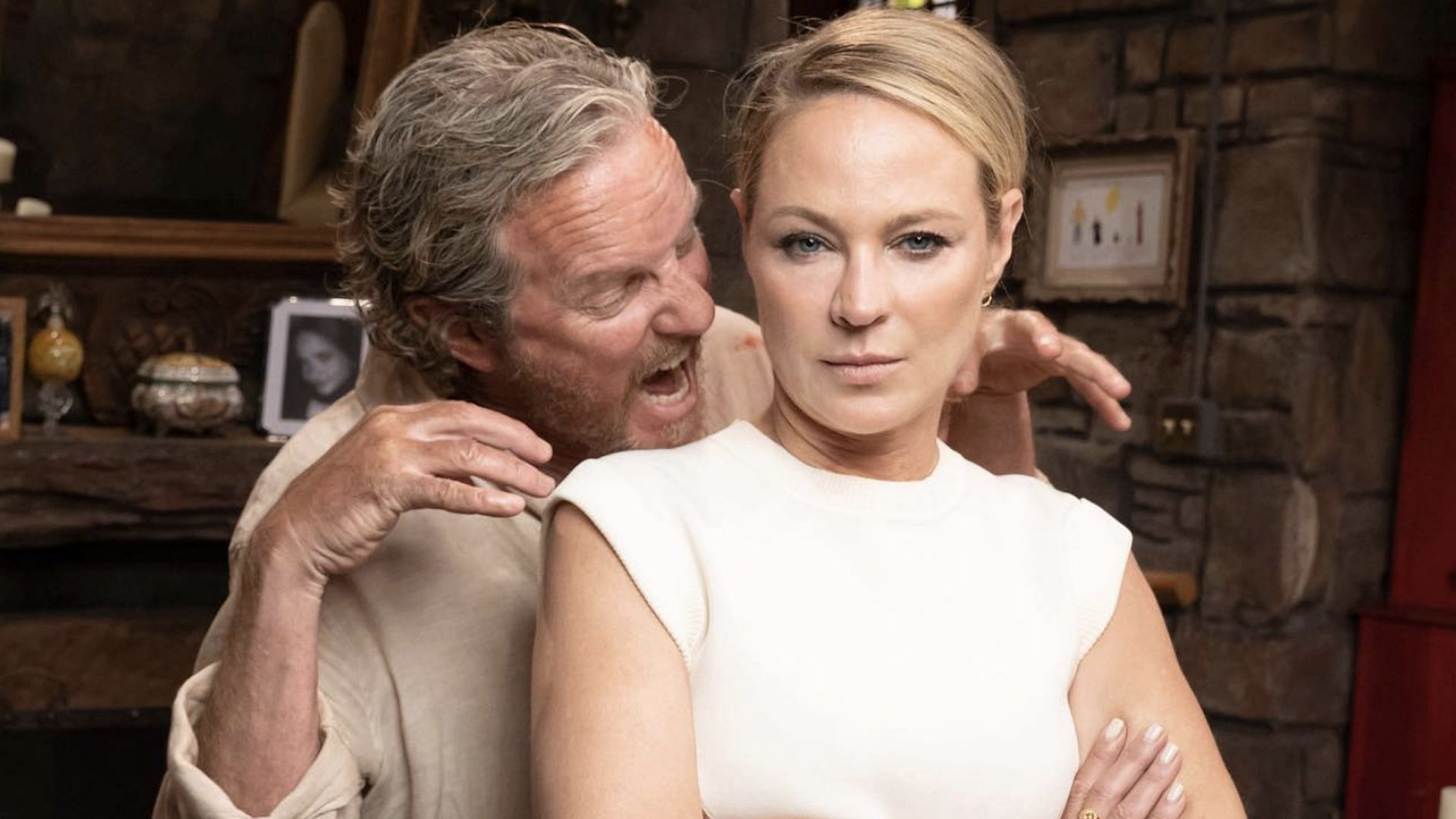Y&R’s Sharon Cast Out: Can She Survive as the New Pariah of Crimson Lights?

In a shocking turn of events on The Young and the Restless, Sharon Newman finds herself shunned and ostracized, even in the one place she once considered a safe haven—her own coffeehouse, Crimson Lights. The once-welcoming establishment is now a battlefield of stares, whispers, and icy glares. Sharon, who has long been the heart of Genoa City, is now the subject of its darkest gossip and disdain.
The tension is palpable as customers enter the café, only to give Sharon nasty, judgmental looks. She’s a woman on bail, a murderer in their eyes—her confession hanging over her like a dark cloud. The community she’s served for years now wants nothing to do with her. It’s a chilling and heartbreaking sight as regulars that once greeted her with warm smiles now avoid eye contact, steering clear of her like she’s a criminal in their midst.
But here’s the kicker: Sharon owns Crimson Lights. This is her empire, the place where she’s built relationships, healed wounds, and become a staple of the town. And yet, as the walls close in around her, one has to wonder—why even go there anymore? With the weight of her confession hanging over her, it would seem more fitting if the café itself became a ghost town, completely devoid of customers who simply can’t stomach the idea of supporting a murderer.
It’s not just about Sharon’s past—it’s about how the people around her have turned their backs on her. The disapproval is everywhere: from the glares to the whispers, the very air in Crimson Lights feels suffocating. The betrayal from the community feels like a slow burn, and it’s clear that no matter how much she’s tried to prove herself, some people will never forgive her.
If we’re talking realism, Crimson Lights might just be on the brink of becoming a deserted café. The haunting thought lingers: will this once-thriving hub of Genoa City become a ghost of its former self, as locals refuse to even walk through its doors? Sharon, the beloved businesswoman, could soon find herself with empty chairs and empty coffee cups, her past catching up to her in the most cruel and public way.
This dramatic shift in Sharon’s world serves as a grim reminder that redemption, in the eyes of a community, is often harder to come by than anyone might think. Will Sharon ever be able to reclaim her place in the town she’s always called home? Or has she become the pariah, forever marked by her dark past?
This version intensifies the drama, focusing on the betrayal Sharon faces, the tension at Crimson Lights, and her looming isolation from the community. It also leaves readers with a sense of curiosity about what will happen next, which should entice them to keep reading.








